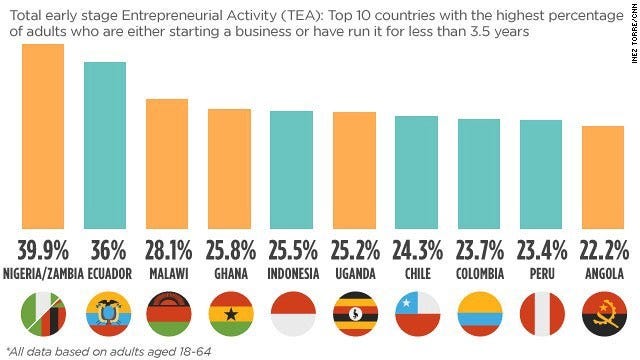There is end in sight for the lingering dispute between Nigerian traders in Ghana as the country is set to revise its controversial investment law that sees each foreign retail trader paying a fee of up to $1 million. To that effect, the Ghana Investment Promotion Centre has completed its revision of the country’s investment law and presented a draft to cabinet. However, the bill for passage into law by Parliament will not be presented to Parliament before the end of this year.

“It is not a question of the law but a bigger issue of trade relationships between nations” says Yofi Grant, GIPC’s chief executive. “From my standpoint it is how well we can equip our traders to be competitive. Our traders are not competitive against others because the others may have cheaper sources of finance, they might have access to markets that we do not have. So for that is the real problem.”
Here Is What You Need To Know
- The President Nana Akufo-Addo administration had wanted to see a new GIPC law passed before the end of its first term — to both advance its liberal economic policy agenda and have a key piece of legislation to crow about — it has backed down for now, due primarily to the fierce controversy over foreign traders being disallowed from operating in Ghana’s small scale retail space.
- Ghanaweb reports that government is worried that whichever way it handles the issue in the proposed new investment code, the political opposition could create political capital out of it.
- Generally, the draft of the revisions seek to further liberalize Ghana’s investment laws in order to attract more foreign investment.
- The core of the investment code still in use today was drawn up in 1995, when there were still very few liberalized developing economies to compete against Ghana. Today, there are more than 100 ‘emerging/frontier’ markets in competition for Foreign Direct Investment.
- However at the same time the revisions seek to facilitate greater local participation and content in industries so far dominated by foreign interests. But the strategy adopted in the draft revision of the investment code is focused more on facilitating increased local capacity and competitiveness rather than at trying to simply legislate compulsory greater local participation.

Read also: Ghana ’s Traders Union Gives Government One Week Ultimatum To Shut Out Foreign Retailers
- Indeed this is the approach recommended by GIPC in the draft revisions towards resolving the ongoing dispute between Ghana and Nigeria over the fate of the latter’s small scale retailers in Ghana.
- It is instructive that the last time the Ghana Union of Traders Associations got government to close down foreign owned small scale retail shops in Accra, the local traders immediately took advantage by hiking their prices drastically, which indeed was part of the reason government quickly back pedaled.
- Besides, pressure is mounting on government from both ECOWAS and AfCFTA to liberalize access to retail markets by nationals of member countries and with Ghana hosting the latter’s headquarters, Ghanaian trade officials fear that the country’s commitment to regionalist trade will be called into question.
- Thus government is applying the temporary solution of postponing legislative debate on the revision of the investment code until its second term begins — assuming of course it wins the upcoming election — while seeking ways to ensure that Ghanaian traders would be price competitive by the time new legislation eases the restrictions.
- The thinking is that from early next year, with elections not due for another four years, it will run into much less political traffic than is in place currently.
Charles Rapulu Udoh

Charles Rapulu Udoh is a Lagos-based lawyer who has advised startups across Africa on issues such as startup funding (Venture Capital, Debt financing, private equity, angel investing etc), taxation, strategies, etc. He also has special focus on the protection of business or brands’ intellectual property rights ( such as trademark, patent or design) across Africa and other foreign jurisdictions.
He is well versed on issues of ESG (sustainability), media and entertainment law, corporate finance and governance.
He is also an award-winning writer
